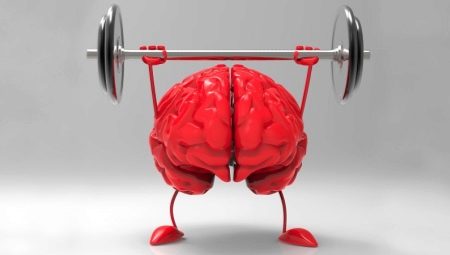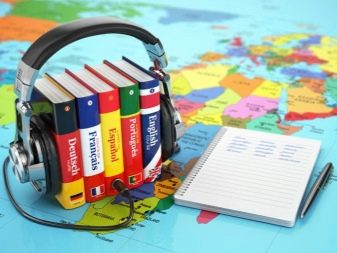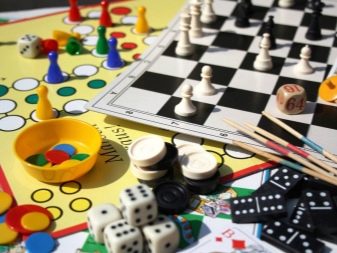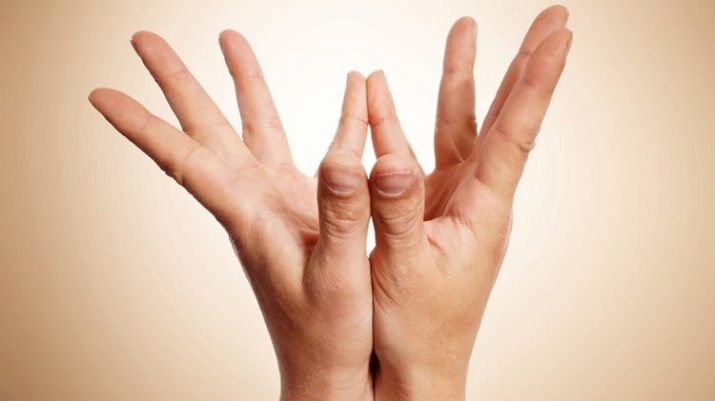Training memory and attention

Memory and attention problems are relevant for both children and adolescents and adults. The most common cause of this is lack of exercise, so regular exercise can dramatically improve concentration and memorization. From the article you will learn about the most effective techniques for developing memory and attention at any age.
How can adults improve?
Training memory and attention is different - often the same exercises help to improve both concentration and memory - these two brain functions are inextricably linked.
Memory and attention inevitably diminish in adulthood, but science knows ways of remembering and concentration techniques that will lead to noticeable improvements.

If you want to develop these qualities, the following methods can help you.
- Learning foreign languages: they are now needed for work and travel, and they also allow you to perfectly develop your ability to memorize - choose the language that you need or interest. It is important to practice every day, otherwise it will not be of any benefit to the memory. Make it a rule to learn 5-10 new words a day. Work with them, apply in simple sentences, learn new ones and gradually build up your vocabulary: pay attention to pronunciation and spelling.
- The Pythagorean exercise is considered effective for the development of memory and attention for adults. Every evening you should remember in as much detail as possible everything that happened to you over the past day: it is strongly recommended to write it down - to keep a kind of diary.It is very important, when compiling such records, to remember everything sequentially and not to jump from one event to another. Get in the habit of rereading what you have written in the morning so you can memorize more information at once. Over time, begin to re-read not only the records of yesterday, but, for example, the records of a whole week.
- Memorizing poems by heart can also be very helpful for memory and attention. Poems are different, and you can choose the right ones for yourself - it is important that the task causes difficulties, but is feasible. If your memory is really bad, take a short, simple poem. If a few stanzas are easy for you, you can tackle part of the poem. In such activities, it is extremely important that the poems are not forgotten immediately after the lesson: try to remember them during the day, repeat them after a few days or after a week.
- If you love to read, but find that you don't remember the content well, you can improve your memory by retelling what you read. Try to read a few pages and then reproduce the content as much as possible. Over time, increase the number of pages for retelling, but do not reduce the length of your story - it should be as detailed as possible. Try to retell the content of what you read immediately after reading, after a few days, after a week.
- Try board games or online games to develop concentration and memory. Now there are all kinds of tables, crosswords, computer games aimed specifically at attention and memory. This way you can have fun and exercise. The advantage of games is that they do not need to be allocated a separate time in the middle of the day: you can study with your phone or with a piece of paper while traveling on public transport or standing in line.
- Mnemonics can help to develop memory and attention Is a collection of simple techniques that make it easier to memorize large amounts of information. Most of these techniques are based on the convenient structuring of knowledge or on the search for successful associations. For numerical information, the method of associations is usually used: for example, you can associate numbers with the dates of birth of your friends, the phone numbers you know, the number of rooms or floors in your house. If you need to remember non-numeric information, a categorization method can be used for this.
Unsystematic facts are difficult to assimilate, so you need to divide them into interrelated groups and blocks.


Exercises for children
It is also very important for children of preschool and school age to develop both attention and memory - these qualities are necessary for them to be successful in their studies. There are all sorts of programs for reducing attention deficit - including play techniques. It is very important to be able to keep the child interested in the activity and to devote time to regular training to increase cognitive abilities. All methods are effective only if you can do at least a little, but every day. Attention and memory problems in children can be solved in the following ways.
- Read fairy tales to the children and discuss them later together. Motivate the child to recall the content of the tale, details and details in as much detail as possible. Ask leading questions to help reproduce what you read in more detail. You can draw up a thesis plan, according to which the child will have to retell the fairy tale. Make sure your child does not forget the content too quickly: ask them to answer the content questions a few days and a week after reading. Increase the number of pages over time.
- Try asking your child questions before reading the text - this exercise is especially effective for concentration. If the child is determined to find answers to specific questions, he will listen more attentively and notice little things.Try to keep the questions not about the main storyline, but about details that are secondary to the plot. This method will not only help turn reading into an interesting game, but will have a positive effect on the development of attention and will interest the child in literature.
- Learn poems with your child - it is both good for memory and attention. Children often confuse stanzas with each other, because they coincide in rhythm: it is necessary to ensure that the child carefully delves into the content of the poem and does not miss anything important. You can take long poems and learn them in parts - for example, add one stanza every day. However, it is important to start each lesson by repeating the entire poem in order to train long-term memory.
- Children will surely like all kinds of play techniques. Use cartoons or toys to develop their attention and memory. Encourage them to memorize the plots of their favorite cartoons and programs with the smallest details - let them remember how the characters are dressed and what they say. You can sit toys on the table and ask for a few seconds to remember their position relative to each other, and then turn away and retell.
- Keeping a diary for kids can be fun too.... Try to implement the Pythagorean exercise with them.
- Computer educational games or applications for smartphones will also be useful and will be able to interest children.
There are many multimedia games designed to improve attention and memory for children of all ages - from simple to fairly complex games.


How to train memory in the elderly?
In old age, memory inevitably fails, and concentration of attention becomes worse. To combat these processes, training is essential. Mindfulness and memorization can be trained with the help of simple techniques and tasks - they will help to strengthen memory and increase concentration.
- Try to quickly take a look around the room in a few seconds, and then go out and write down in as much detail as possible what objects are in the room and how they are located relative to each other.... Such a game will help you learn to memorize better - over time, you will be able to list items in more detail. To complicate matters, ask family members to deliberately arrange familiar household items in a different order. Give yourself these memorization tasks every day.
- Memorize famous people and interesting historical facts with dates... Read them several times, make yourself cards with names and dates, try to relate them. When the first successes appear, complicate the activities and take more names and dates. This game will not only train your memory, but it will also help improve your erudition. You can take names and facts from the general knowledge category or from specific areas that interest you.
- Memorize new routes while walking around the city. Try to memorize as much detail as possible the number of houses, their color, location, the presence of shops, traffic lights and intersections. Very often, elderly people are poorly oriented on the terrain - this is one of the consequences of memory and attention impairment. This problem can be solved with regular exercise: if you consciously try to memorize roads and streets, over time it will become easy.
- Develop fine motor skills - it is very important for the brain and for the development of attention and memory. Knitting, modeling and other handicrafts are not only fun, but also useful.
- Try to master new things for yourself. Learn to use a computer if you don't know much about it, start reading scientific literature in an unknown field, or find a new hobby.
It is new activities that stimulate the development of new neural connections that prevent the brain from aging. And to master a new business, memory and attention will come in handy - so you will inevitably train.


Useful gymnastics
Mental exercises are not the only benefits for memory and attention. Fine motor skills are directly related to the work of the brain - by improving it, you can develop cognitive abilities. Any physical exercise can also affect the brain. Try the following techniques.
Finger
Finger gymnastics will always be useful for the development of fine motor skills. It's no secret that finger movements are associated with the work of our brain, and the more skillfully we are able to perform small precise movements with our fingers, the better the brain feels. To stimulate an improvement in memory, you can make animal figures out of fingers, try to unbend or bend them, resisting with the other hand, try to bend one finger, leaving the rest in a static position.
It is unlikely that one development of fine motor skills will be enough to seriously improve memory, but in parallel with other activities, this will be of great help.

Kinesiology exercises
These exercises engage all muscle groups - during physical activity, our body sends certain signals to the brain that can stimulate mental activity. These exercises are different and are suitable for people of all ages.
The simplest is stretching, try to exercise every day, trying to stretch the muscles, but do not overdo it. - it is better to do this after normal exercises and not to bring yourself to severe pain. Another simple kinesiological exercise is to stretch out in a standing position and strain all the muscles, and then completely relax. This should be done in several approaches. Finally, breathing exercises can also help - for example, breathing alternately with different nostrils, closing the other with your fingers.
Fingers
These are exercises for brain development, which are performed with one fingers - they are aimed at the coordination of the two hemispheres. Their essence lies in the fact so that the fingers on the right and left hand perform different movements. The simplest finger is to connect the little finger to the thumb on one hand, and the thumb to the index finger on the other. After that, it is necessary to successively change the fingers - on one hand moving from the little finger to the index finger, on the other - vice versa. It is better to do the exercises regularly, speed and accuracy are important in them - at first it is better to do them slowly but correctly, and over time to increase the pace.

Recommendations
Good memory and attention are important both at work and in school and in everyday life. The problem of deterioration in the ability to memorize, as well as difficulty with concentration are relevant for adults and children at any age. There are many methods to improve your memory and attention, including in psychology, but it is important to remember about the general points that will affect the effectiveness of classes.
- First of all, regularity is very important. - if you start skipping classes, being lazy and returning to exercises once a week, there will be no point in them. Even if you have a very busy schedule, you can find a few minutes a day for training - their duration is not as important as regularity and consistency. When exercises become a habit, it will be much easier for you, and you will achieve results faster. To motivate yourself, choose a technique that will be enjoyable and interesting for you.
- Motivate yourself to be successful... If you only do light tasks without trying to strain your mind, there will be no results. When you feel that the exercise is not causing any problems, make it harder. Let the large amounts of information cause mistakes and hiccups, but this is how you learn. It is difficult tasks that will bring you a sense of satisfaction when you notice how your memory and attention have improved.
- Don't give up when you start to see the first improvements. This state must be maintained, and there are no limits to the development of memory and attention.
Try to return to game exercises or mnemonics at least occasionally in order to maintain good memory and concentration for a long time.









